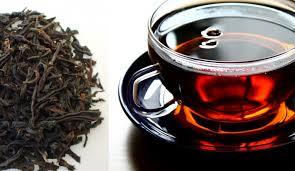There are many who are devoted to black tea, not only for its strong, distinct flavor but also for its health benefits, both known and even perceived. A couple years ago the beverage was linked to added bone protection for the elderly, and possibly other benefits as well. Now, "for the first time," a new study has found that black tea may promote some form of weight loss.
Researchers from UCLA reported today that in conducting mice experiments, decaffeinated black tea "alters energy metabolism in the liver by changing gut metabolites." For mice ingesting it, intestinal changes were identified where "bacteria associated with lean body mass increased."
“Our new findings suggest that black tea, through a specific mechanism through the gut microbiome, may also contribute to good health and weight loss in humans,” said lead author Susanne Henning, an adjunct professor at the UCLA Center for Human Nutrition. “The results suggest that both green and black teas are prebiotics, substances that induce the growth of good microorganisms that contribute to a person’s well-being.”
It's been known that green tea polyphenols, a chemical that changes the liver's metabolism, is absorbed into the blood. Researchers here found that polyphenols in black tea, which are larger and cannot be absorbed in the small intestine, instead produce changes in the gut bacterium.
We wrote about the bone density benefits of black tea when the American Journal of Clinical Nutrition published a study in late 2015, which prompted us to write that the news suggested "drinking three cups of tea per day may cut down on the risk of fragile bones among the elderly, as well as reduce the risk of illnesses such as cancer and heart disease."

This new study, partly funded by the National Institutes of Health and published in the European Journal of Nutrition, was conducted over four weeks and involved four groups of mice placed on different diets: low-fat, high-sugar (LF/HS); high-fat, high-sugar (HF/HS); high-fat, high-sugar and green tea polyphenols (HF/HS-GTP); and high-fat, high-sugar and black tea polyphenols (HF/HS-BTP).
Researchers concluded that "the weights of the mice that were given green or black tea extracts dropped to the same levels as those of the mice that received the low-fat diet throughout the study."
Black tea comes from the same plant as white and green tea, yet its flavonoid profile is not the same. During the growth process, black tea develops different types of flavonoids, containing antioxidant traits that may help prevent heart disease and some cancers. But more study in this area is needed.




